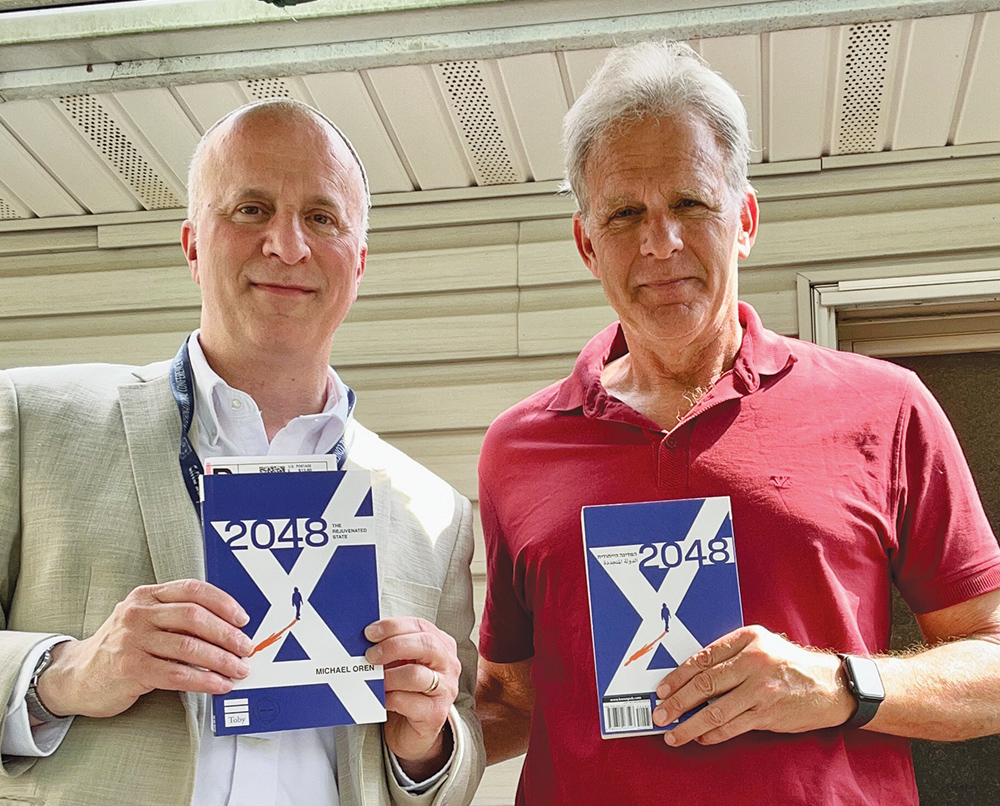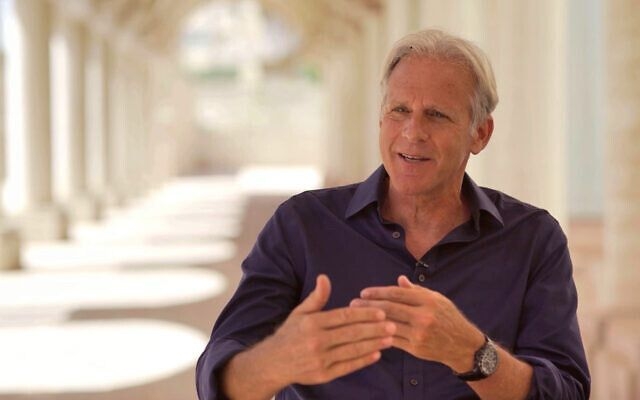By Harry Glazer
No matter where you stand on some of the pressing political issues facing Israel today—if you love or loathe Bibi, if you fear or are eager for judicial reform, if you are worried about or proud of Charedi influence over the Knesset, and a host of other divisions—it’s likely that there’s one view you share. And that view is that Israel faces many divisive issues which, left unaddressed, could dangerously unravel the social fabric of the state.
One Israeli leader who has studied and grappled with these divisions over his career is Michael Oren, who made aliyah from the U.S. in 1979, taught at Harvard, Yale, Georgetown, and Hebrew universities, served as Israeli ambassador to the United States (2009-2013) and as deputy minister of diplomacy in the prime minister’s office, and is the author of three books that were New York Times bestsellers.
Oren is the author of the newly published “2048: The Rejuvenated State,” which looks at a range of troubling fracture points in Israeli society and offers thoughtful ideas that, if implemented, could boost public faith in the government, foster greater national unity, and better position the state for its next century of existence.
In an interview with The Jewish Link earlier this month, while he visited the U.S., Oren shared aspects of his prescriptions for Israel’s future that he feels are most essential, and his plans to mobilize others to advocate for those changes.
Asked to list the recommendations in the book that are his highest priority, Oren identified four.

- Asserting the Sovereignty Of the State
Oren points to the tragedy at Mount Meron on Lag B’Omer 2021, which resulted in the loss of 45 lives, as clear evidence that the Israeli government has consistently failed to effectively enforce its own rules. As other examples, he points to the failure of the government to enforce rules against polygamy and illegal housing in the Bedouin communities of the Negev and illegal land seizures and construction by Arabs in East Jerusalem and other areas of the North. As a remedy, he advocates for a marked expansion of the Israeli police force, which he stated is “hemorrhaging personnel” and is poorly positioned to pursue many violations of the law.
- Creating a Wider Sense of National Identity
Oren pointed to two groups whose members are often seen as disconnected from the country’s national life—Chareidim, who make up 12-13% of the state, and Israeli Arabs, who are 21% of the state. For Israeli Arabs, Oren proposes an Israeli “New Deal,” a governmental commitment to fight bias in all forms against Israeli Arabs and in return, to ask the Arabs to make a pledge of loyalty to the state and to serve in either the army or the national service. For Charedim, he noted that many have begun to embrace use of Hebrew language as opposed to Yiddish and urged that this trend expand. He also advocated for greater state control over the curriculum in Charedi schools, to ensure that they include substantial coverage of topics that increase the vocational prospects of those in their communities.

- Closing the Social Gap
Oren noted that after the U.S., Chile and Mexico, Israel has the largest social gap, with a million children now living below the poverty line. He stated that 12% of the population is employed in the high-tech sector, receiving lucrative salaries, while the rest of the country lags behind. He also pointed out the high cost of living in Israel and the fact that Tel Aviv was recently identified as the most expensive city in the world. He suggested that the government make it a priority to pursue policies that lower the cost of living and to provide hi-tech training to many more students, not just those whose parents can afford tutoring in these subjects.
- Battling Corruption in Government
Oren asserted that corruption undermines Israel’s ability to deal with other threats, erodes public faith in government, and saps people’s will to act. As a current example, he noted that a few ministers in the government have been convicted of breaking the law, which leads many citizens to question why they must follow the laws.
Given the current thin majorities in the Knesset and the contentious politics in the country, Oren noted that advancing reform will not be easy. “We need to see a rise of new political leaders, who will return us to the values that created this state.” He contends that these values can build national unity among the different communities of the country.
Oren pointed out that his book “2048: The Rejuvenated State” is designed to animate a broad social push for change. It envisions a five-year and a 10-year program and it begins with town hall discussions across the country, which have already started. The Israel in 2048 organization plans to hold international symposia, to offer essay prizes on themes in the book, and to ultimately coalesce Israelis into political movements for specific changes. He explained that right now, the Israel in 2048 organization is focused on building awareness of and educating people about the problems facing the State of Israel; further down the road, they intend to mobilize people for change.
For more information on the Israel in 2048 organization, see: www.israelin2048.com
Harry Glazer is the Middlesex County editor of The Jewish Link. He can be reached at [email protected]













